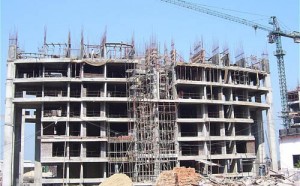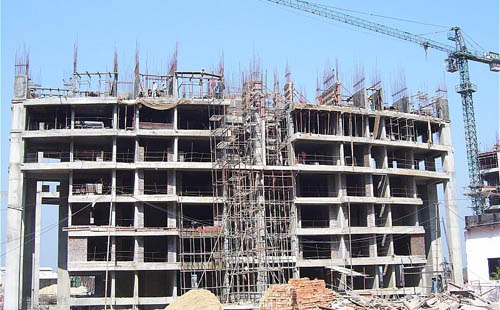Bottom Line: Well short of the committed supply, the Indian real estate lacks execution capability and commitment of developers on the ground is questionable, finds Ravi Sinha.
 Instead of scaling up execution capability or launching what they can deliver, the sector in its collective consciousness is always looking for explanations ranging from clearances, liquidity crunch, slackening demand, already standing inventory, rising input cost and labour shortage.
Instead of scaling up execution capability or launching what they can deliver, the sector in its collective consciousness is always looking for explanations ranging from clearances, liquidity crunch, slackening demand, already standing inventory, rising input cost and labour shortage.
Excuses galore within the sector and there is a big question mark over the execution and delivery capability of the developers. The execution failures have given a lending credence to the criticism that the developers just can not deliver on time. Delivery has emerged as a major issue even though the developers continue to blame it on external factors.
It is not helping anybody, neither the buyers nor the developers as the delay in delivery is actually creating a vicious cycle of uncertainty for developers themselves.
Almost all of the projects that were launched between 2008 and 2010, and the residential units were supposed to be delivered between 2013 and 2015 are delayed. In majority of these projects the given delivery timeline was 36 months, with a grace period of six months granted.
Defending the indefensible
Though a section of the developers defend it with statistics that months of piling inventory is one of the reasons why they are forced to put a brake on the projects getting into a fast forward mode, fact of the matter is that more than clearances and liquidity crunch today execution capabilities of many of the developers poses a big question mark.
Most of the developers seem to deny the failure in execution capabilities. They maintain that prolonged delay is seen mostly in tier II and III cities where developers have launched the project and due to market conditions they failed to sell.
Thedenials of the developers are not supported by the data available in the sector that suggests the track record of developers have mostly been poor with Delhi-NCR being the biggest defaulter in delivery and execution.
Analysts tracking the sector believe that though the developers need to maintain some inventory to maximise their price realisation. But if that exceeds 14-15 months, they are forced to borrow to fund their operating expenses.
Piling up of unsold inventories of projects also puts downward pressure on returns. However, it is not the cost-benefit analysis of the developers that is behind over-promise and under-delivery, rather it is their execution capability, or rather lack of it, which is a real cause of concern.
Why execution failures?
Over leveraged balance sheets affects execution
Inability to raise more funds stalls multiple projects
Slackening demand is often a alibi of non-execution
Excuses not justified
The real estate companies cite several reasons – not getting requisite approvals, slowdown in the market, land acquisition and farmers issues, among others. Anyone who is not familiar with the way Indian real estate developers work would be surprised at this.
One would expect a company to have sorted issues like land acquisition and getting the requisite approvals before a project is launched. If there is no land where will the homes be built? If there are no permissions how is the real estate company going to get around building the homes? And given this, why is a project even being launched?
But typically this is not how things work in the Indian real estate in general and Delhi-NCR in particular. The real estate company first tested the market through pre-launches; then they launched a project; collected more money for it; and then got around to acquiring the land and getting the permissions in place. And once it raised some money, only then did it finally go around to building homes.
So, when a real estate company says that homes have not been delivered due to these reasons, then they are largely true though not fair on those who have bought homes hoping to live in them.
Scaling beyond capabilities
Liquidity crunch of the developers is cited to be the major reason by the developers for this execution delays. Many developers had borrowed a lot in the past to buy land banks. Now that demand has slowed down and interest rates have gone up, they are stuck servicing large amounts of debt which sucks out most of their cash flow. They do not have too much money left for development.
However, many of the analysts even comment that the reasons for inadvertent delays are not confined to reasons ranging from late approvals, economic slowdown and farmer issues, besides fund problems.
The fact lies that beyond the liquidity issues also lie the fact that some of the delays are also occurring because small developers are trying to execute projects beyond their execution capabilities.
Even in some cases the inventory figure looks high because the developer announced the project without getting the mandatory license and the project got stuck up for a long time before the clearances could be obtained.
This school of thought says the projects that have been delayed were launched around 5-7 years back. So, the current economic slowdown should not have impacted these projects. They even caution it would be difficult for developers to deliver even half of the committed supply for the year and they would be conveniently blaming it on the demonetisation of the government.
Next: Crisis of manpower affecting execution capability?





